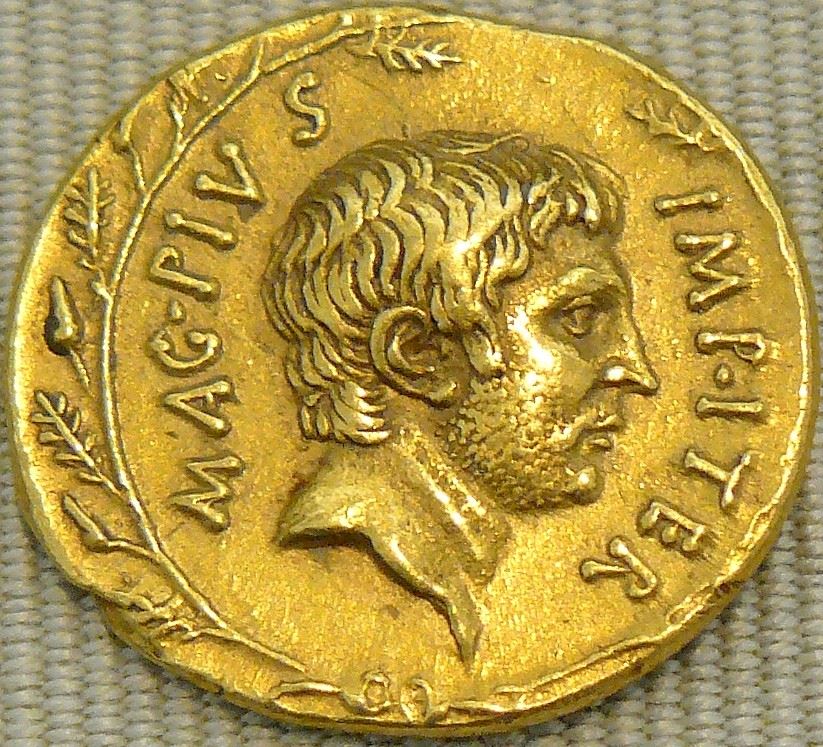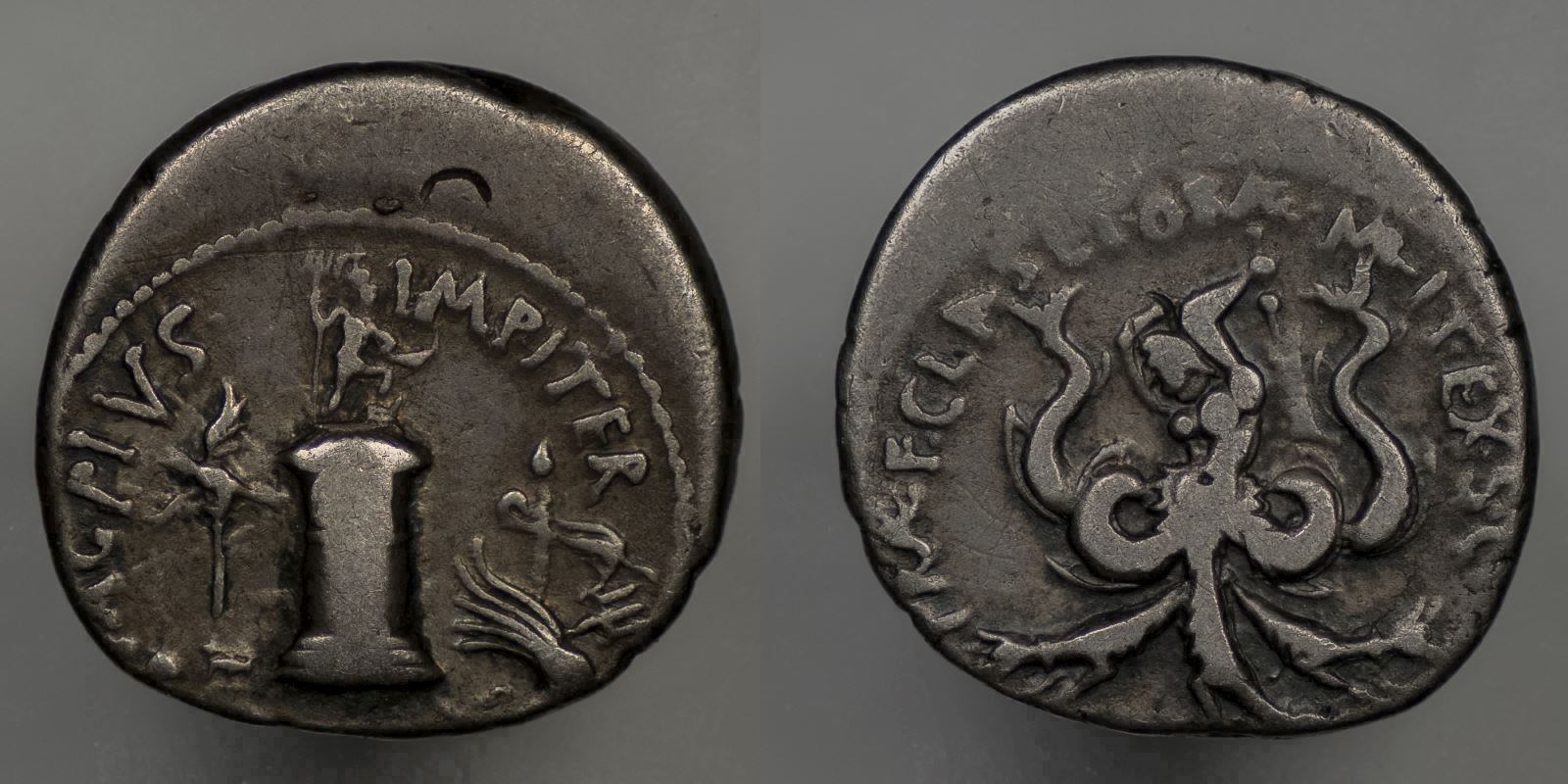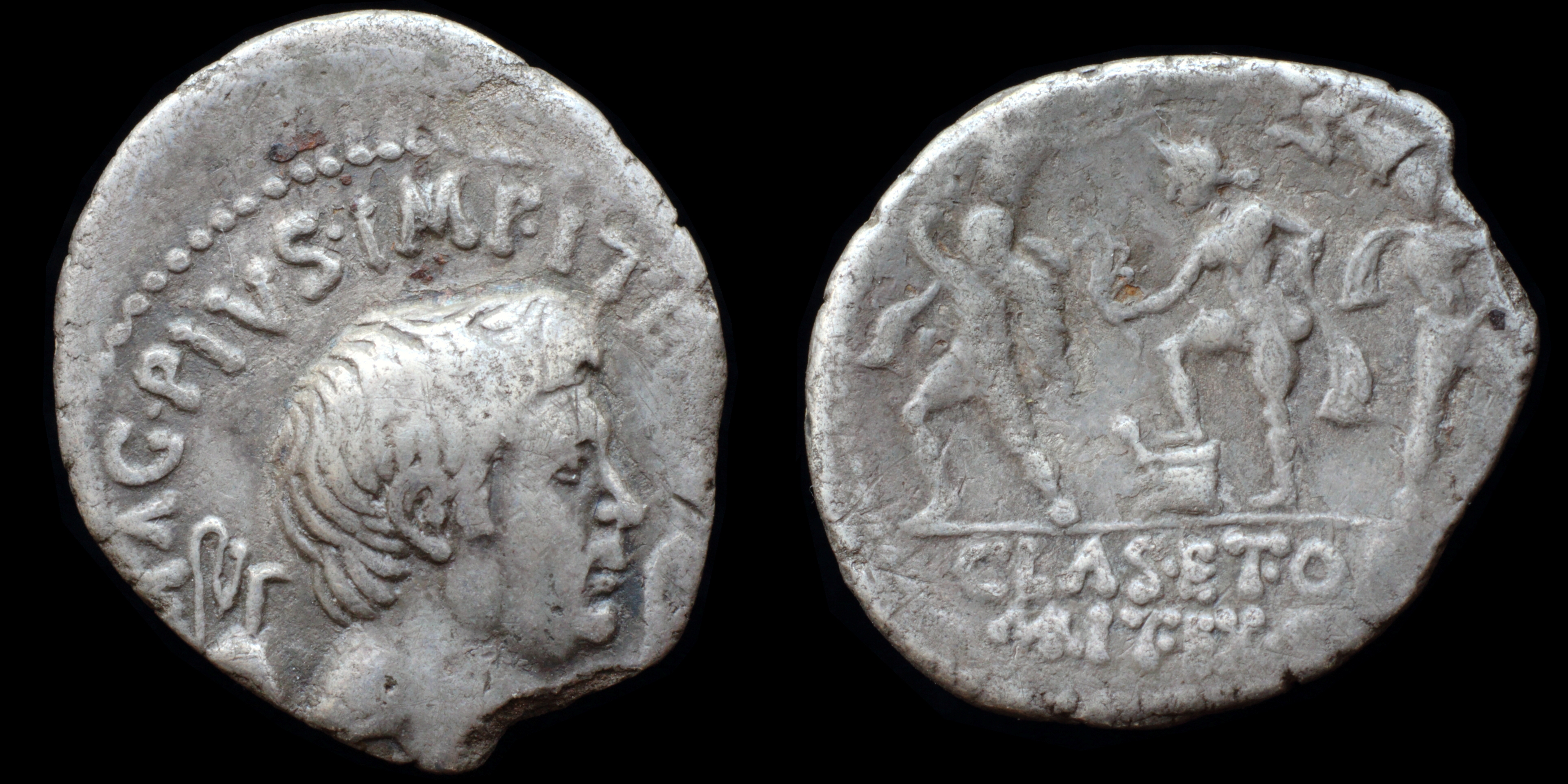Sextus Pompeius Magnus Pius was a Roman general from the late Republic. He was the last focus of opposition to the Second Triumvirate. His father was Gnaeus Pompeius Magnus, and his brother was Gnaeus Pompeius Junior.
After his father was killed in the Civil War against Julius Caesar, Sextus fled to Spain, where he continued the war against Caesar. After Caesars assassination in 44, he came to terms with Marcus Antonius and was given a naval command, but in August 43 he was outlawed. For the next several years he ravaged the coast of Italy with his fleet.
He was defeated by Octavian’s friend Agrippa at Naulochus, and fled to Asia Minor but was captured and executed.
After his father was killed in the Civil War against Julius Caesar, Sextus fled to Spain, where he continued the war against Caesar. After Caesars assassination in 44, he came to terms with Marcus Antonius and was given a naval command, but in August 43 he was outlawed. For the next several years he ravaged the coast of Italy with his fleet.
He was defeated by Octavian’s friend Agrippa at Naulochus, and fled to Asia Minor but was captured and executed.

Epithet: Pius ("the Pious")
(1)
Sextus Pompey

Obverse: MAG. PIVS. IMP ITER, Pharos of Messana, surmounted by statue of Neptune standing facing right, holding trident in right hand and rudder in left, left foot on prow; in foreground, galley left; aquila on prow; scepter, trident, and grappling-iron in stern
Reverse: PRAEF. CLAS ET. ORAE. MARIT. EX. S.C, The monster Scylla facing left, her torso of dogs and fishes, wielding a rudder as a club with both hands
Diameter:
19 mm
Die Orientation: 12 H
Weight: 3.74 g
Die Orientation: 12 H
Weight: 3.74 g
No notes for this coin
RSC I Sextus Pompey 2
(2)
Sextus Pompey

Obverse: bare head of Pompey the Great right; capis (jug) to left, lituus to right, MAG·PIVS·IMP·ITER
Reverse: Neptune standing left, foot on prow, holding aplustre and chlamys; the brothers Anapias and Amphinomus running in opposite directions on either side, holding their parents on their shoulders, PRAEF / CLAS·ET·OR(AE) / (MAR)IT·EX·S·C
Diameter:
20 mm
Die Orientation: -
Weight: 3.4 g
Die Orientation: -
Weight: 3.4 g
Sicily mint, scarce. Reverse depicts Sicilian story of Amphinomus and Anapias which also indicate probable location of the mint (Catania):
"A stream of fire burst forth from Etna. This stream, so the story goes, flowing over the countryside, drew near a certain city of the Sicilians. Most men, thinking of their own safety, took to flight; but one of the youths, seeing that his father, now advanced in years, could not escape and was being overtaken by the fire, lifted him up and carried him. Hindered no doubt by the additional weight of his burden, he too was overtaken. And now let us observe the mercy shown by the Gods towards good men. For we are told that the fire spread round that spot in a ring and only those two men were saved, so that the place is still called the Place of the Pious, while those who had fled in haste, leaving their parents to their fate, were all consumed."
Neptune symbolizes Sextus' command of the seas and obverse is a reference to his piety in upholding the Republican ideals of his late father.
Crawford 511/3a, SRCV I 1392, RSC I Pompey the Great 17, Sydenham 1344, BM Sicily 93
